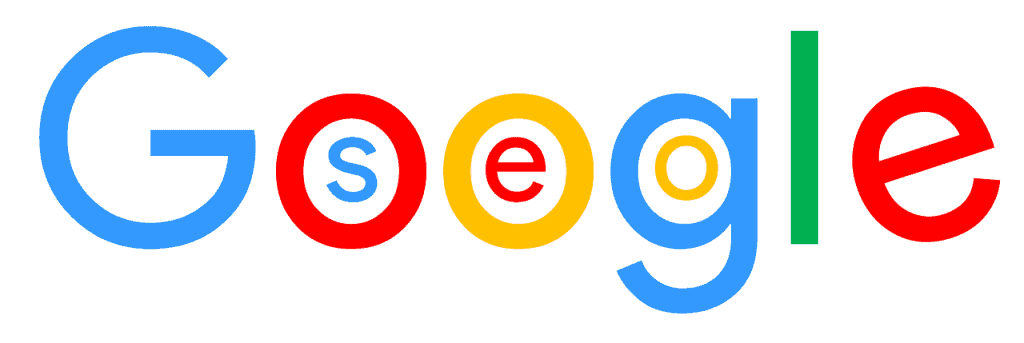In the intricate world of digital marketing, understanding the importance of title tags can significantly impact your online visibility and click-through rates. Title tags are small but mighty components of your webpage that play a pivotal role in how search engines interpret the content on your site and how users decide which links to click. By optimizing your title tags, you can not only improve your search engine rankings but also attract more relevant traffic to your site, ultimately boosting your overall online presence. This article will guide you through the essential steps to craft effective title tags that capture both the attention of search engines and users alike.
The Importance of Title Tags and How to Optimize Them
Have you ever wondered why some web pages grab your attention more than others in search results? That magical pull often starts with something as simple yet crucial as the title tag. It’s like the first impression your website makes, and we all know how important first impressions are, right?
Well, let me take you on a journey to discover why title tags hold such significance and how you can optimize them to push your web pages higher in search engine rankings.
What Are Title Tags?
Alright, let’s start with the basics. Title tags are HTML elements that define the title of a web page. You’ll find this title displayed on search engine results pages (SERPs) as the clickable headline for any given result. Pretty essential, right?
If you’re curious what a title tag looks like in raw HTML, it’s basically this:
Now, you might think a small tag like this couldn’t possibly wield much influence. But don’t be fooled! This little tag packs quite a punch.
Why Title Tags Matter
First Impressions Count
Imagine you’re meeting someone new. Before they say a word, you’ve already judged their appearance, right? Title tags play a similar role. When a user looks at SERPs, the title is the first thing they notice. It’s your shot at making a great first impression.
Boosts SEO Rankings
When search engines like Google crawl through your website, they use title tags to understand what your page is about. A well-crafted title tag can enhance your site’s relevance to specific queries, helping you climb up those precious rankings.
User Experience
You want visitors to feel confident about the content they’re clicking on, don’t you? Effective title tags set accurate expectations for users, making them more likely to stay and explore your website.
Helps with Social Sharing
Guess what shows up as a headline when someone shares your webpage on social media? Yup, it’s your title tag. A catchy, relevant title can increase the likelihood of social shares, bringing more traffic to your site.

Key Components of an Effective Title Tag
Length Matters
You don’t want it too long or too short. Most search engines display the first 50-60 characters of a title tag. Aim for that sweet spot to ensure your full title appears in SERPs.
Use Keywords Wisely
Keywords are your ticket to visibility. Position your main keyword towards the beginning of the title to maximize its impact. But, beware of keyword stuffing; it’s not worth the risk of penalties from search engines.
Make It Unique
Every page on your site should have a distinct title tag. This uniqueness helps search engines differentiate between your pages, giving each one a chance to rank for relevant queries.
Be Descriptive and Clear
Being vague is the last thing you want. Your title should succinctly describe the page’s content. This not only helps search engines but also ensures that users know what to expect.
Add Your Brand Name
If you have room, consider adding your brand name at the end of the title tag. It builds brand recognition and trustworthiness.
Common Mistakes to Avoid
Overstuffing Keywords
It’s tempting, but resist the urge to cram in too many keywords. Not only does it look spammy, but search engines will penalize you.
Duplicating Titles
Duplicate title tags are a big no-no. They create confusion for search engines and users alike, reducing the effectiveness of your SEO efforts.
Neglecting Mobile Users
Remember, a growing number of users are browsing on mobile devices. Ensure your title tags are mobile-friendly by keeping them within the character limit and making them easy to read.
Ignoring Relevance
The title tag should accurately describe the content on the page. Misleading tags might get clicks, but they will also increase your bounce rate, which is bad for SEO.

How to Create Effective Title Tags
Start with Keyword Research
Before crafting your title, you need to know what terms your target audience is searching for. Tools like Google Keyword Planner and Ahrefs can help you find these golden keywords.
Write for Users First, Search Engines Second
Your title should be engaging and user-friendly. Yes, you should include keywords, but never at the expense of readability.
Be Specific
General titles like “Great Tips for SEO” are less effective than specific ones like “10 Proven Tips to Boost Your SEO in 2023.” Specificity adds value and attracts more targeted traffic.
Use Action Words
Words like “Discover,” “Learn,” “Boost,” and “Create” can make your title more compelling. Action words encourage clicks, which can lead to higher rankings.
Test and Iterate
SEO isn’t a one-and-done deal. Use tools like Google Search Console to monitor the performance of your title tags. Don’t be afraid to tweak them if they’re not delivering the desired results.
Advanced Tips for Title Tag Optimization
Use Synonyms and Related Terms
Sometimes, you might find it difficult to incorporate all the relevant keywords into a single title tag. Using synonyms and related terms can help you cover more search queries without overstuffing.
Consider User Intent
User intent is the purpose behind a search query. Make sure your title tag aligns with the intent of the user. Whether they’re looking for information, a product, or a service, your title should promise to fulfill that need.
Local SEO
If you’re targeting a local audience, including your location in the title tag can significantly boost local SEO. For example, “Best Coffee Shop in Seattle” is a powerful title for local searches.
Utilize Power Words
Power words make your title more appealing. Words like “ultimate,” “essential,” and “proven” can excite users and make them more likely to click through to your page.

Tools to Help You Optimize Title Tags
Google Search Console
Google Search Console isn’t just for tracking your site’s performance. It can also provide insights into which title tags are performing well and which ones need improvement.
Yoast SEO
If you’re using WordPress, Yoast SEO is a fantastic plugin that helps ensure your title tags are up to snuff. It provides real-time feedback and suggestions.
Moz Title Tag Preview Tool
This tool allows you to see how your title tag will appear in search results. It’s a great way to ensure your title is neither too long nor too short.
Ahrefs
Ahrefs is a comprehensive SEO tool that can help you with keyword research, competitor analysis, and optimizing your title tags. It’s an all-in-one solution for those serious about SEO.
SEMrush
SEMrush is another powerful SEO tool that offers a range of features to help you optimize your title tags. From keyword suggestions to performance tracking, it’s got you covered.
Real-Life Examples and Improvements
To put everything into context, let’s look at some real-life examples and see how they can be improved.
Example 1:
Original Title: “Best Pizza Recipe”
Improved Title: “Best Homemade Pizza Recipe | Easy and Delicious Tips”
Here’s why the improved title is better:
- Specificity: It specifies that the recipe is homemade.
- Action Words: “Easy and Delicious Tips” makes it more engaging.
- Keyword Placement: The main keyword “Best Pizza Recipe” is still at the forefront.
Example 2:
Original Title: “Learn SEO Quickly”
Improved Title: “Learn SEO Quickly: A Beginner’s Guide to Effective SEO Strategies”
Here’s why the improved title is better:
- Descriptiveness: The title now describes what the content offers.
- Target Audience: It specifies that it’s a beginner’s guide.
- Keyword Placement: The main keyword remains prominently placed.
Measuring Success: How to Track Performance
Click-Through Rate (CTR)
One of the primary metrics to gauge the success of your title tags is the Click-Through Rate (CTR). A higher CTR generally indicates that your title tags are effective.
| Metric | Good Indicator |
|---|---|
| CTR Above 2% | Effective Title Tags |
| CTR Below 2% | Needs Improvement |
Bounce Rate
If users are clicking on your page but quickly leaving, it might be a sign that your title tag is misleading or not meeting user expectations.
| Metric | Good Indicator |
|---|---|
| Bounce Rate Below 50% | Engaging Content |
| Bounce Rate Above 50% | Needs Improvement |
Average Time on Page
The more time users spend on your page, the better. It shows that the content is engaging and relevant.
| Metric | Good Indicator |
|---|---|
| Time Above 2 Minutes | Engaging and Relevant |
| Time Below 2 Minutes | Needs Improvement |
SERP Ranking
Obviously, the whole point of optimizing title tags is to improve your SERP ranking. Keep an eye on your rankings for keywords you’re targeting.
| Metric | Good Indicator |
|---|---|
| Rank 1-10 | Highly Optimized |
| Rank 11-30 | Average Optimization |
| Rank 31+ | Needs Improvement |
Conclusion
Optimizing your title tags may seem like a small piece of the SEO puzzle, but it’s incredibly significant. From making a stellar first impression to boosting your rankings and enhancing the user experience, a well-crafted title tag can make a world of difference.
So, next time you’re setting up a new web page or revising an old one, give that title tag the attention it deserves. You’ll be amazed at how much impact those few words can have. Experiment with different strategies, measure your success, and don’t be afraid to make changes. SEO is a constantly evolving field, and keeping your title tags optimized will help you stay ahead of the curve.
And hey, if you have any tips or questions about title tags, feel free to share them. We’ve got to help each other out in this big, wild world of SEO! Happy optimizing!









